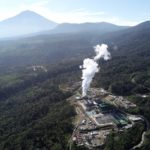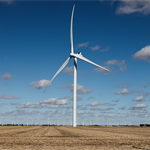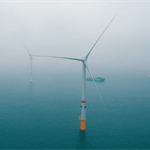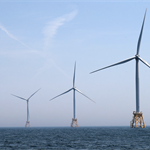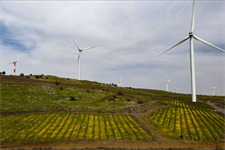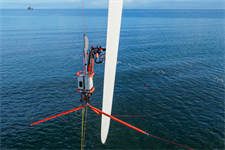Japan needs 130GW of wind capacity to reach 2050 carbon-neutrality target
Energy Disrupter

Increasing Japan’s wind power capacity, which currently stands at around 4.2MW — by more than 30-fold — will help the the nation reach carbon neutrality by mid-century, according to the country’s wind power industry.
In his first policy address to parliament since taking office, new prime minister Yoshihide Suga this week announced Japan will aim to eliminate greenhouse gas emissions by 2050.
Industry minister Hiroshi Kajiyama later told a news conference that plans for meeting the target would be drawn up by the end of the year, according to news wire Reuters.
The Japanese Wind Power Association (JWPA) welcomed the ambition and reiterated targets it had proposed earlier this year to help the country to decarbonise.
It called for:
- 18GW of onshore wind and 10GW of offshore wind capacity by 2030;
- 35GW of onshore wind and 30-45GW of offshore wind capacity by 2040;
- and 40GW of onshore wind and 90GW of offshore wind capacity by 2050.
Japan had nearly 4.2GW of operational wind power capacity – mostly onshore – as of 1 October, according to Windpower Intelligence, the research and data division of Windpower Monthly.
However, it plans to increase its offshore wind fleet through a series of regional auctions, for which it is due to issue a schedule later this year.
Suga added that the country would “fundamentally shift (its) long-standing policy on coal-fired power generation”, but did not provide details of this during his speech to parliament.
Japan accounted for 3% of global carbon emissions in 2018, making it the world’s fifth largest emitter that year, International Energy Agency (IEA) data shows.
Searching for clarity
Researchers and lobbying groups alike called for clarity on how Japan would meet Suga’s carbon-neutrality goal.
The Renewable Energy Institute of Japan recommended a phase-out all of the country’s coal-fired plants by 2030, and for a strategy to use renewable sources for all electricity and energy use
Teruyui Ohno, the research group’s executive director, said: “Whether we can truly laud the Japanese government’s 2050 carbon neutral declaration depends on whether it raises its 2030 reduction target significantly and launches the energy transition necessary for this.”
The group added: “Some have discussed using decarbonisation as grounds for continuing nuclear power, but because of its rising costs and issues related to safety and final waste disposal, nuclear power cannot be depended on.”
Sam Annesley, executive director of Greenpeace Japan, welcomed the announcement, but cautioned that “this commitment must have policy to match”.
He added: “If we are to achieve net zero by 2050, we must massively increase Japan’s renewable energy capacity, with a target of 50% renewable electricity by 2030.
“Anything less than 50% and Japan risks falling short of net zero, and more importantly risks driving the world above 1.5 degrees as per the Paris Agreement.”
Japan’s carbon-neutrality pledge followed a similar announcement by China and preceded another by South Korea.






